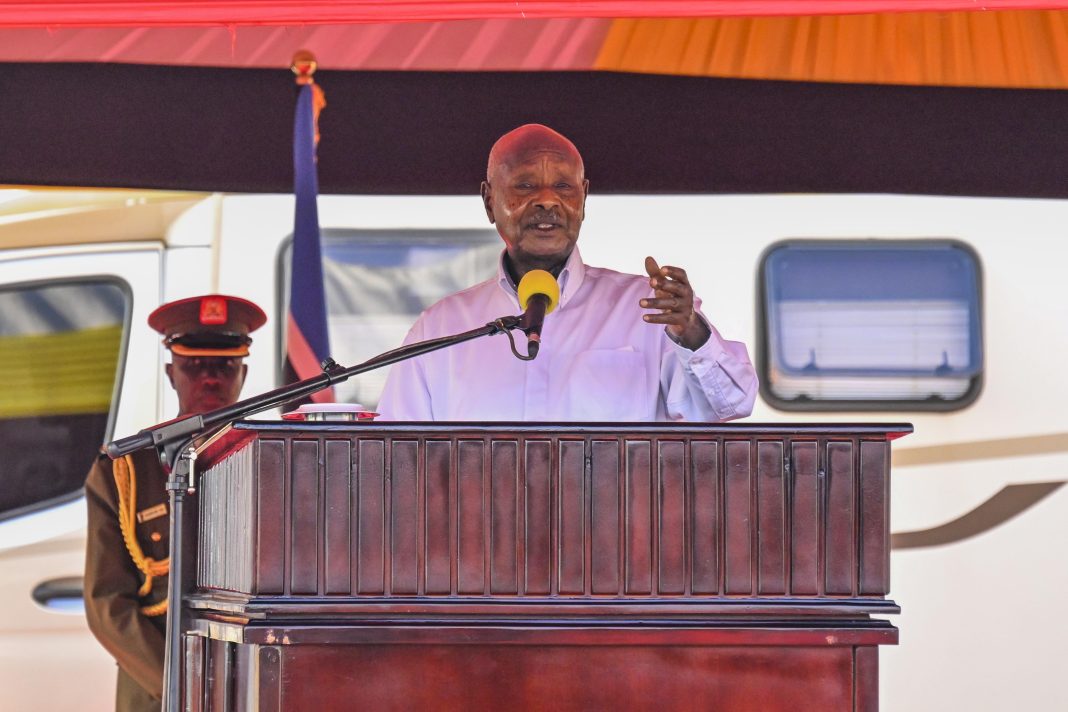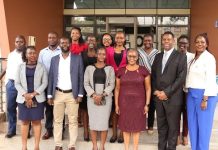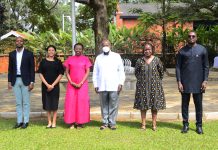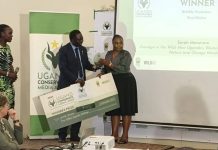President Yoweri Kaguta Museveni has revealed that for Uganda’s economy to grow more, Ugandans need to be competitive in the products and services they produce.
“Our products and services must be cheaper and of better quality than products from other countries. In order to achieve that, we need affordable electricity which is already being worked on because for you to be competitive, you need cheap electricity,” he said.
The President who was in the company of the First Lady and Minister of Education and Sports, Maama Janet Museveni made the remarks today during the reading of the Shs72.136 trillion National Budget for Financial Year 2024/25 at Kololo Independence Grounds.
The Budget Speech ran under the theme: “Full Monetization of the Ugandan Economy through commercial agriculture, industrialization, expanding and broadening services, digital trade transformation and market access”.
President Museveni also noted that the government has already put in place low cost money (loans) for all Ugandans who want to create wealth. He said the money can be accessed through the Parish Development Model (PDM), Emyooga and Uganda Development Bank (UDB).
“I really want to render irrelevant, these money lenders and all those people who suck our people, we shall continue putting money in Emyooga, UDB so that the people who want wealth creation, have soft money which is not very expensive,” the President said.
“Labour is still not expensive. However, to further handle the issue of cost of production that renders products and services cheaper, we must reactive rail and water transport for cargo. This is what is missing now. We have repaired the old metre gauge from Malaba to Kampala and also from Tororo to Gulu – Pakwach. We are going to build the Standard Gauge Railway from Malaba to Kampala and Kampala to Mpondwe. Later, we shall expand the SGR from Gulu-Nimule. The railway will transform our capacity to build wealth because once it’s fully operational, then transport of goods from here up to Mombasa, DRC, South Sudan and Dar-es-Salaam will be cheaper. It will also save the roads because this crowding by the heavy trucks is because the railway is not working. Then the oil pipeline will also solve that problem.”
President Museveni also highlighted that irrigation for agriculture as a strategic intervention will as well stabilise Uganda’s economy.
On the other hand, President Museveni attributed the current slow economic growth to importation of goods.
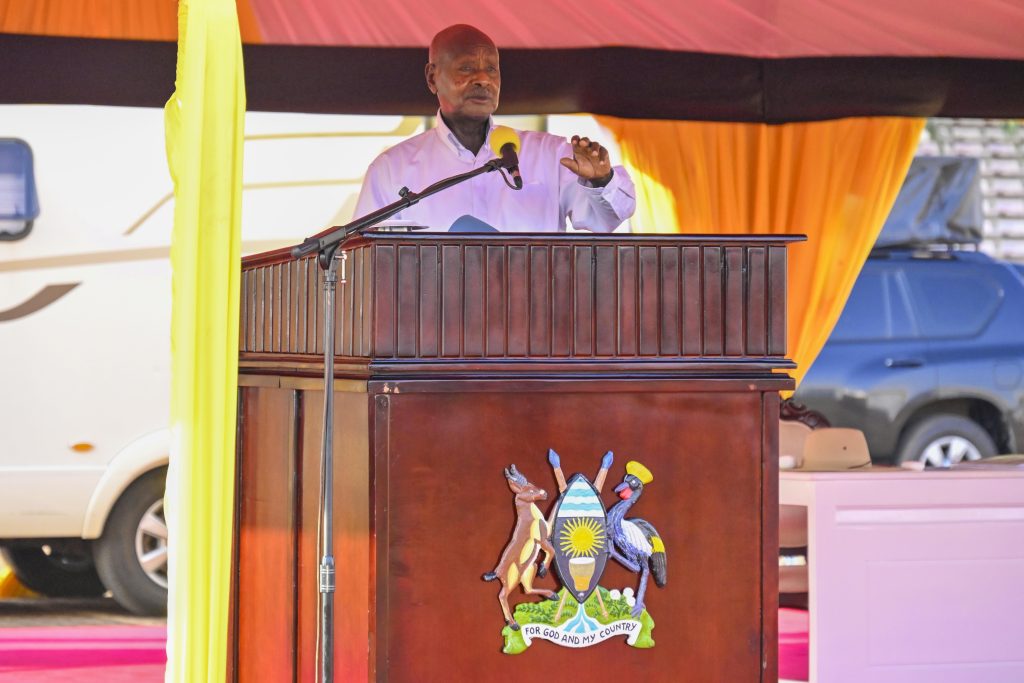
“You have seen the export earnings this year grew by 38 per cent, from USD 4 billion to USD 7 billion and the rate of growth- 38 percent because we are underutilizing everything. This is the only problem. Uganda imports furniture, can you imagine that? Money is taken to buy dead people’s clothes from outside. We spend USD 800 million on imported textile. Why should we import textile? We had some issues with the people they call traders. What they call traders are importers. This slave mentality should go away, I’m not a slave myself. I have never accepted a slave dependence mentality, that is how we were able to lead our revolution,” he said.
“So, this importing is what is creating this discrepancy. The economy is bigger; USD180 billion (by Purchasing Power Parity method) but if you use the exchange rate method, it comes to USD 55 billion. But if you solve that (importation), the size in figures will be much bigger than it is now.”
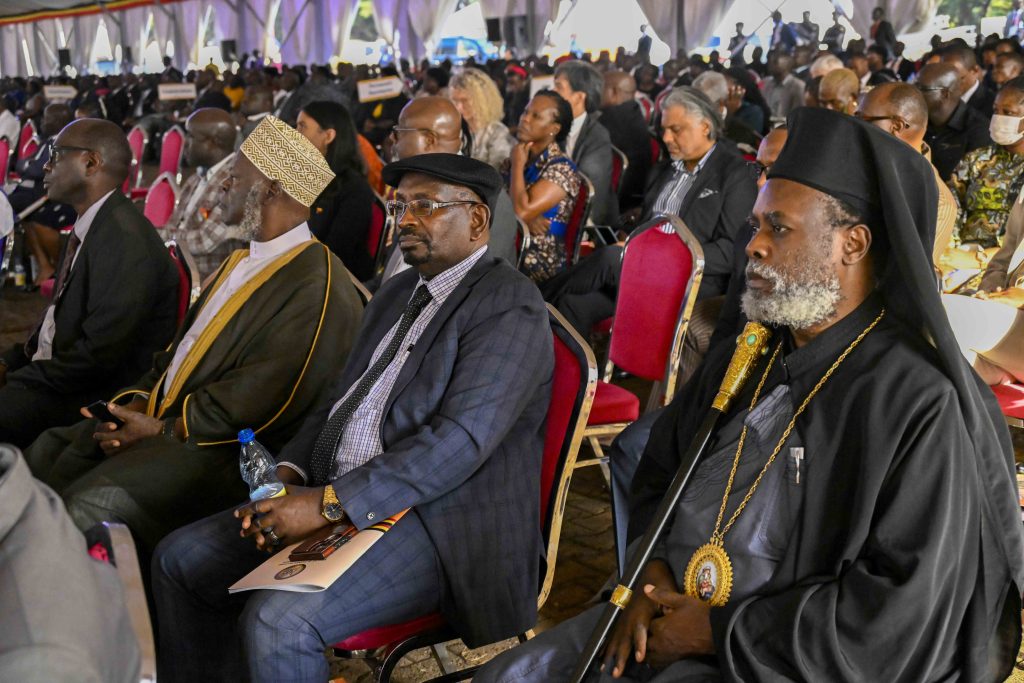
President Museveni was however optimistic that in a few years, Uganda’s economy size will catapult to USD 500 billion, saying that “I’m sure of this because much of our economy today consists of raw materials that are in value nominal of 10 percent of the value of the final products. By adding value to coffee, maize, forest products, minerals, etc, our economy will grow exponentially.”
The President further reiterated his fight against corruption, assuring that the culprits will be dealt with accordingly.
“Corrupt people insult our heroes. As a leader, instead of using the chance to lead, you take away the little that could help Ugandans,” he said.
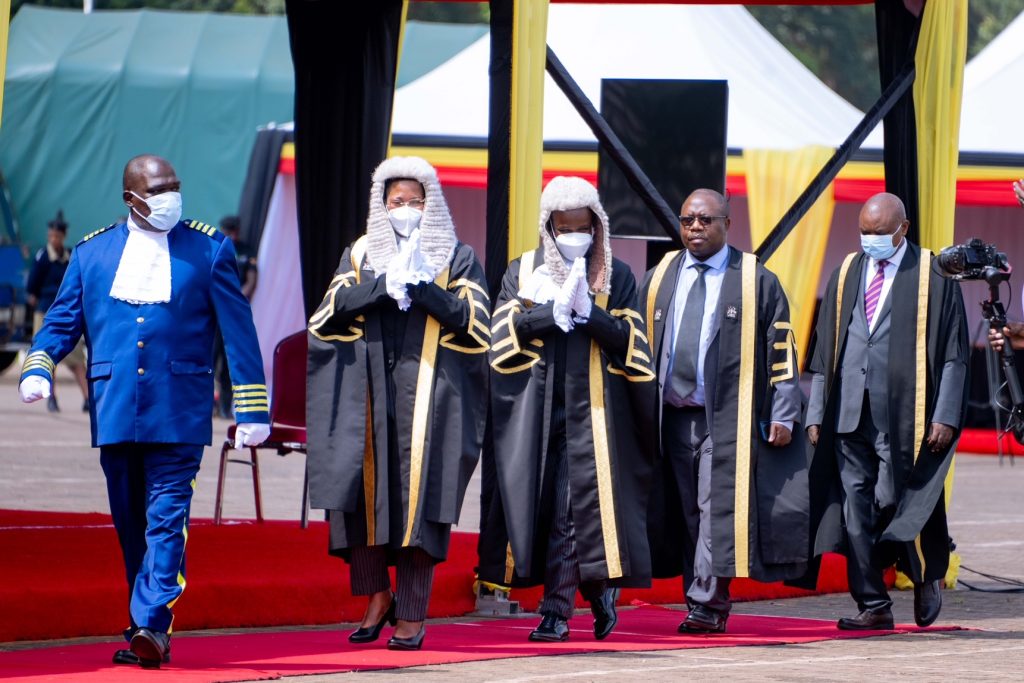
The Speaker of Parliament, Rt Hon. Anita Among said today’s budget speech is a culmination of a rigorous and comprehensive consultative process which usually spans the period of August to May in any given Financial Year.
She informed the President that Parliament appropriately adapted its Rules of Procedure, in part 24, to preserve and foster participation and consultation during the entire Budget process.
“By doing so, Parliament is able to gather a wide range of perspectives, views and opinions in shaping and informing the consideration of the national budget. This budget today is a result of the complementary working relationship among the three arms of government; Executive, Legislature and Judiciary. This has led to improved transparency in the budgeting process,” the Speaker said.
“As we embark on the Financial Year 2024/25, I urge the Accounting Officers as entrusted stewards of public resources, to exercise diligence and due care in safeguarding and ensuring the efficiency and effective utilisation of public resources. Previously, we have urged Accounting Officers to share with the leadership of the legislature any incidences of influence peddling. However, we haven’t received any of such information. We urge the Accounting Officers to maintain open channels of communication and coordination with the leadership for transparency and accountability.”

The Minister of Finance, Planning and Economic Development, Hon. Matia Kasaija, who delivered the Budget Speech on behalf of the President, said Uganda’s economic activity has remained on a recovery path despite recent global challenges like tighter financial conditions and increased global tensions which disrupt supply chains.
“I am pleased to report that Uganda’s economy has fully recovered from various internal and external shocks that impacted performance in the past four years. GDP is projected to grow by 6 percent this financial year 2023/24 compared to 5.3 percent in FY 2022/23. This year’s growth of 6 per cent is even more impressive when compared to Sub-Saharan Africa’s average of 3.8 per cent, and the global average of 2.9 percent projected for the year 2024,” the Minister said.
He also highlighted some of the factors which have supported Uganda’s strong economic growth such as low inflation and relatively stable exchange rate which have allowed investment planning and supported export competitiveness.
“The increased investment in the oil and gas sector related projects, support of Foreign Direct Investment, higher external demand of Uganda’s products including agricultural and Industrial products, recovery of tourism supported by increased investment in tourism and marketing as well as peace and security for persons and their properties, have also supported the country’s economic growth,” he noted.
Hon. Kasaija further revealed that Uganda is currently the best investment destination in Africa, according to the 2024 Annual Investment Meeting in Abu Dhabi, Uganda is the best investment destination in Africa.
“In March, 2024, Uganda met the requirements to graduate from the category of Least Developed Countries (LDCs). Uganda also moved from the category of low human development to medium human development,” he asserted.
He also reported that there are four anchor sectors to drive Uganda’s economic growth further in the next financial year and these include; agro-industrialisation, tourism development, mineral development including oil and gas as well as Science, Technology and Innovation (STI) including ICT.
“These anchor sectors will propel Uganda to a 500-billion-dollar economy in the next one and half decades.”
Hon. Kasaija also assured that job creation ranks top on the Government’s socio-economic agenda, explaining that the number of workers subscribing to the various pension schemes in the country increased to more than 3.14 million members in FY 2023/24, an increase of 4.2 percent compared to 3.01 million members in FY 2022/23.
“On another front, so far, 1.165 million households have received PDM funds worth Shs. 1.126 trillion as of May, 2024, and estimated to create about 2.5 million jobs. And a total of 23,083 youth projects have benefitted 263,897 youths under the Youth Livelihood Programme, in areas of agriculture, trade, services and industry. This has created over 1,250,000 indirect jobs. Similarly, the National Special Grant for Persons with Disabilities is supporting 6,282 enterprises, benefitting 49,372 persons with disabilities,” he said.
“Government is also going to create more formal jobs and related livelihoods through a number of project-funded interventions. Notable among these are the GROW and INVITE Projects. The GROW Programme is expected to directly benefit over 8,000 female-owned enterprises, 280,000 female entrepreneurs and 1.6 million indirect beneficiaries.”
Hon. Kasaija also noted that at least Shs1.059 trillion PDM money has been provided next financial year for an additional Shs. 100 million per parish to benefit more households.
“The Parish Development Model has now been fully rolled out. A total of Shs 2.4 trillion has so far been provided. The money is being transferred directly to the beneficiaries in 10,585 parishes across the country. The introduction of the WENDI Application, by the Government-owned Post Bank and its partners, has saved beneficiaries the inconvenience of travelling long distances to open up bank accounts or withdraw their money. It has also enhanced transparency by providing full visibility and traceability for all the funds up to last-mile beneficiary. The extensive mobile telephone coverage (both smartphones and ‘Kabiriti’) has helped to lower transaction costs for the PDM beneficiaries,” he said.
“To-date Government has provided a total of Shs 480 billion through Emyooga. Out of this, a total of Shs. 268 billion has been disbursed to 6,810 Emyooga SACCOs. The beneficiaries have been able to save Shs 85 billion to further grow their SACCO funds. As a result, 607,636 individuals across the country have benefitted from the Emyooga funds, and Shs 80.28 billion has been recovered from the first-round beneficiaries and it is being advanced to others. In the next Financial Year 2024/25, I have provided an additional Shs 100 billion under Emyooga to support more Ugandans to create wealth and boost their incomes.”
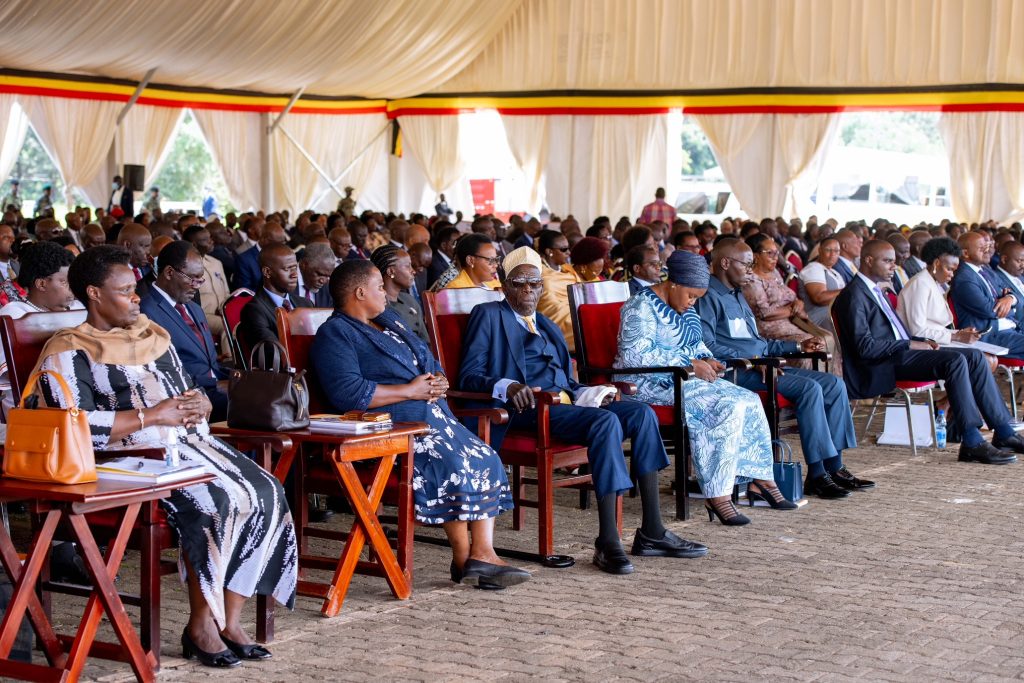
The event was also attended by the Vice President, H.E Jessica Alupo, the Chief Justice, His Lordship Alfonse Owiny-Dollo, The NRM 1st National Vice Chairman, Alhajji Moses Kigongo, the Prime Minister, Rt. Hon. Robinah Nabbanja, the 3rd Deputy Prime Minister, Rt. Hon. Rukia Nakadama, Ministers, Members of Parliament, Members of the Diplomatic Corps, security agencies leadership, among others.


